The hospitality industry faces a growing cybersecurity threat.
Hotels, spas, and resorts often hold a wealth of guest data, making them attractive targets for criminals.
To protect your business, you need to stay vigilant and invest in strong cybersecurity practices, so let’s discuss what these are.
Why Guest Data Security Matters in the Hospitality Industry
Data protection should be a top concern in the hospitality industry. Guests expect their personal information to be kept secure and private, and it’s your responsibility to ensure this is the case.
Unfortunately, data breaches are becoming more common.
2024 saw a 13% rise in cyberattacks within the hospitality industry, with the cost of each breach averaging around $4.45 million.
To pile onto the costs, violations of privacy laws and regulations such as the EU’s General Data Protection Regulation (GDPR) and the Payment Card Industry Data Security Standard (PCI DSS) can result in heavy fines.
So, taking steps to secure data not only protects your guests and builds trust but also safeguards your business and protects your wallet.
The Risks of Poor Guest Data Management
Failure to manage guest data correctly can result in a whole host of problems that can lead to the closure of your business.
When mismanaging data, you become vulnerable to:
- Data leaks and hacks: Cybercriminals know that hospitality businesses carry a lot of sensitive data, which is why they are often the target of attacks.
- Financial losses: If your business is found to have a data breach, the fines and compensation claims can be severe.
- Legal consequences: Data security regulations and laws are likely to impose strict penalties if you are non-compliant.
- Reputational damage: We’re in an age where news spreads fast. Once word gets out that you don’t keep data secure, it can ruin your reputation forever.
So, how do data breaches happen?
Data breaches usually occur through improper storage and weak security protocols. Using outdated systems and poor staff training on how to handle data correctly increases the risk.
Take Marriott International, for example. In 2018, hackers broke into their reservation system, stealing credit card details, passport information, and the personal data of millions of customers.
The result? $28 million in expenses and fines.
More recently, in 2023, MGM Resorts suffered a social engineering attack that disrupted digital room keys and payment systems.
The attack cost MGM $100 million and caused a significant drop in room occupancy rates.
Let’s not forget that these are giant, multi-national corporations that have the money to invest in heavy cybersecurity. So, if it can happen to them, it can happen to you.
Best Practices for Securing Guest Data
Securing your guest data takes diligent ongoing effort and an investment in the right systems.
If you can implement these best practices, then you’re off to a great start:
- Data encryption: All sensitive data should be encrypted, both at rest and in transit. Use AES-256 encryption for stored data and Transport Layer Security for data in transit. Keep your encryption methods up-to-date to stay ahead of new cyber threats.
- Secure payment processing: Make sure all payment systems follow PCI DSS rules. Use randomly generated tokens and end-to-end encryption for extra security.
- Multi-factor authentication: Use two authentication methods to access secure data systems. If possible, use biometric authentication for extra security.
- Security audits: Data security is not a one-and-done thing. It requires regular auditing, including penetration testing and vulnerability assessments, to identify weaknesses before hackers do.
- Cloud-based solutions: Opt for cloud-based platforms that boast heightened security, such as automated backups, real-time threat prevention, and access controls. Look for a platform that offers geo-restrictions to block access from high-risk locations.
Data Privacy Compliance: What Hospitality Businesses Need to Know
Hospitality businesses serve guests from all over the world. That’s why it’s crucial to understand and follow key data privacy rules:
- GDPR (General Data Protection Regulation) applies to businesses handling EU residents’ data and requires transparency and consent for data collection.
- CCPA (California Consumer Privacy Act) gives California residents control over their personal information, requiring businesses to disclose data usage.
- PCI DSS (Payment Card Industry Data Security Standard) ensures safe credit card transactions to reduce fraud risks.
Secure Digital Payments: Protecting Guest Transactions
Payment processors are particularly high-risk since they contain lots of valuable financial information.
Choose a payment gateway that offers the following security features:
- Compliance with PCI DSS standards
- Random-generated tokenization (replaces credit card numbers with a secure token)
- End-to-end encryption for transaction safeguarding
- Contactless and mobile payments (which are safer than traditional methods)
- Real-time fraud monitoring
Role-Based Access & Data Permissions: Who Should Have Access?
Data access must be strictly controlled since you never know who may have ill intentions.
Only give access to staff members who actually need it, and keep a close eye on who has accessed what and when. This will go a long way toward reducing vulnerabilities and preventing unauthorized data exposure.
Therefore:
- Implement role-based access control: Employees should only have access to data relevant to their roles.
- Audit logs: Keep a digital paper trail of all access and activity.
- Access control policies: Regularly update user permissions and revoke access for former employees the moment they leave.
Preventing Data Breaches with Cybersecurity Measures
Invest in a high-quality data security system with robust firewalls and strong anti-virus protection. Only use secure networks (encrypted wifi networks, VPNs, etc.) and implement strong password protocols.
Education is key.
Your staff should be well-trained in how phishing scams work, social engineering tactics, and overall cybersecurity best practices.
Run training sessions regularly and build a culture of awareness where staff recognize just how important data security is.
Using AI & Automation for Secure Guest Data Management
AI is your ally in the fight against cybercrime. It’s fast and adept at identifying security risks before they become a genuine problem.
AI-powered security solutions can quickly spot fraudulent activity and anomalies, and automatically monitor data access. The system will automatically flag suspicious behavior in real time, allowing you to take quick action.
Building Guest Trust Through Transparent Data Policies
Guests want and deserve to know how their data will be handled. They need to feel confident that any information they hand over will be handled appropriately and securely.
Transparent data policies build trust. You can do this by:
- Clearly communicating data polices that explain what information is collected and why.
- Using consent forms to obtain guest approval for data collection.
- Providing opt-out options so guests can control their data preferences.
- Making all policies and notifications easy to understand. Use plain language that cannot be misinterpreted.
Support and Training: Which Platform Keeps You Covered?
As a hospitality business, you’ll naturally use third-party software and systems for guest transactions and interactions.
Choosing a platform with high security is just part of the solution.
As mentioned, proper training is crucial. So, pick a platform that provides plenty of high-quality training and support for data security.
For example, Book4Time offers personalized onboarding to address the concerns that matter most to your business. Additionally, 24/7 support and detailed training resources ensure you and your staff can be trained on how to use it without compromising your guest data.
Frequently Asked Questions: How to Handle Guest Data Securely?
What are the risks of not securing guest data properly?
Hospitality businesses that fail to properly secure guest data risk heavy financial losses, legal penalties, and a significant reduction in reputation and customer trust.
What regulations govern guest data protection?
The key regulators that govern guest data protection are:
- The EU General Data Protection Regulation (GDPR)
- California Consumer Privacy Act (CCPA)
- Payment Card Industry Data Security Standard (PCI DSS)
- Canada’s Personal Information Protection and Electronic Documents Act (PIPEDA)
Why is role-based access control important for guest data security?
Role-based access control is important for guest data security because it only gives authorized individuals access to sensitive data. Limiting access reduces the risk of insider threats and unauthorized breaches.
How can businesses build guest trust in data security?
Hospitality businesses can build guest trust in data security by creating clear, easy-to-understand data policies. Also, using secure payment methods and investing in strong cybersecurity measures will help maintain customer confidence.


